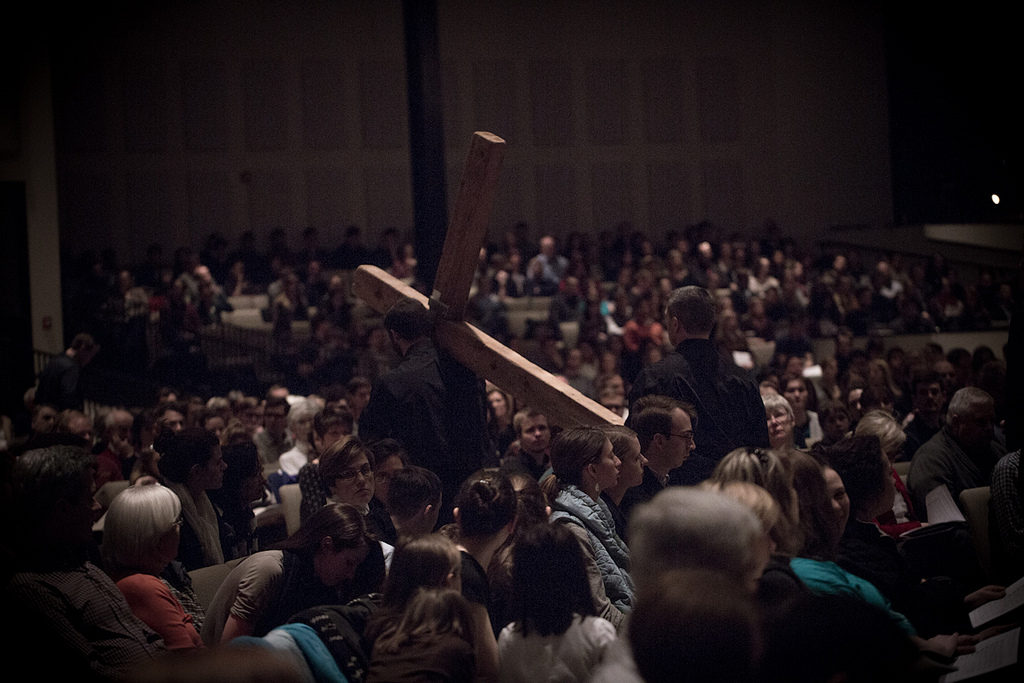How did I lose joy?
I must have failed to hold onto it, I think. Perhaps I left it in a corner, forgot it completely, and it wandered off, hoping to find a home where it wouldn’t be neglected. “I’ve lost my joy,” I tell my husband, and he nods.
Oh dear, it’s noticeable!
Where do I begin looking for joy?
I try singing as I do the tasks that annoy me most. I hum as I pack the children’s lunches, warble in the car, belt it out when I de-clutter the living room.
Where are you, joy? I wonder. I can’t sing any louder. Can’t you hear me?
I try putting on a show of it. Didn’t I hear a pastor say once that the outward action of love can kindle the feeling?
Or was that my college drama director talking about action and emotion?
I’m not sure, but I try it.
Smile, I tell myself.
Smile bigger!
I shove grumpiness down, swat selfish thoughts like pesky gnats.
Joy, come back! Please.
I am sitting, alone at my desk, absorbed in work, when I sense a presence nearby.
Joy? Are you there? I caught a glimpse of you.
But when the house bustles again, when children’s squabbles break the quiet—joy recedes.
Oh, I realize, I am allowing the noise to drive joy away. But joy doesn’t have to have peace and quiet. Joy doesn’t mind chaos or excitement.
I haven’t lost joy.
I’ve sent it away.
I am telling it when it can be present, and when it can’t.
How do I invite joy into my full life—all of it? How do I keep from shutting it out?
Still missing joy, I go to the Good Friday service.
It is good to reflect, to be with others, all reflecting together.
We sing, we read, we listen.
But I am waiting, though I don’t know what I am waiting for.
There is something here for me tonight. I’m not sure how I know this, but I do.
The sermon is finished. We have taken communion. My shoulders slump. It was good, but…
The bishop speaks again. “Some of you have lost your joy,” he says. “You’ve lost the joy of your salvation, your redemption. Come to the cross.”
My hands tremble.
My body feels light.
This is for me. I know this.
It may be for others as well, but it is clearly for me.
But I will have to get up, cross the room, walk in front of so many sets of eyes.
The bishop is still speaking. “Come. We will pray for you, that here at the cross you will remember your source of joy.”
I get up, quick.
My husband, beside me, stands, too.
“Do you want me to come with you?”
I nod.
By the time we reach the cross, there are others.
I am not the only one. We have all lost joy.
The bishop prays. Others pray. I hear only snatches of their words over the music.
But that is all right, because I need to hear the song most of all.
“Behold the man upon the cross,
My sin upon his shoulders;
Ashamed, I hear my mocking voice
Call out among the scoffers.
It was my sin that held him there…”
Somehow, in the second of space before the next line of the song, I experience guilt, sorrow, despair. I did send you there. It was my sin. It was my selfishness. Oh God, I love You, but I don’t know how to stop hurting You. I am unable to pull my thoughts away from myself, away from what I am feeling or not feeling.
All this in a God-stretched moment.
And then…
“Until it was accomplished;
His dying breath has brought me life—
I know that it is finished.”
Stop, I command myself. See truth. Christ does not have to die again. He has done it! I AM redeemed. It is not the chaos that is driving joy away; it is my fear that when I sink into moodiness, into selfishness, that I have stepped out of redemption. But that can never be. He finished it.
“I will not boast in anything,
No gifts, no pow’r, no wisdom;
But I will boast in Jesus Christ,
His death and resurrection.
…
…this I know with all my heart,
His wounds have paid my ransom.”
Paid, accomplished, finished—in a transaction that is outside the scope of time. It is not undone when I grow grumpy yet again, not taken back when I fail or sink into petty thoughts. I look up at the Christ figure on the cross. Through that finished work, I tell myself, I am redeemed. My sin does not for one single moment make that untrue. It is present and ongoing, without conditions, without resting at all on me. I can have joy IN my grumpiness. It is not limited only to when I am feeling peaceful and good but is a reality even when I am fully aware of my own sinful nature.
I feel my husband’s hands on my shoulders. They have been there all along, but I just now sense their gentle weight.
“Behold the man upon a cross,
My sin upon His shoulders”
He took it from me—and He abolished it. Why do I try to carry what He has already taken?
The load rolls off.
And joy resurrects.



